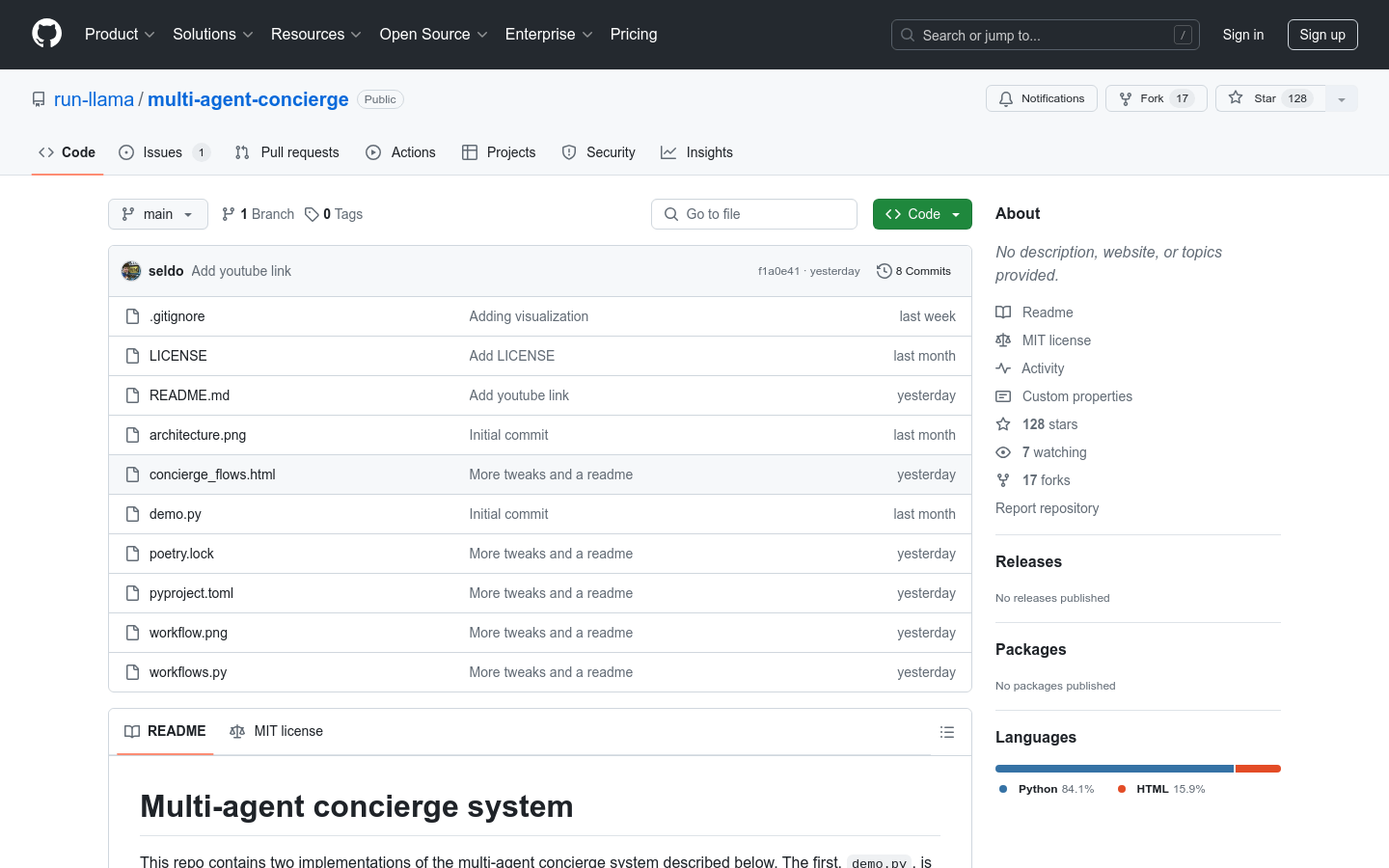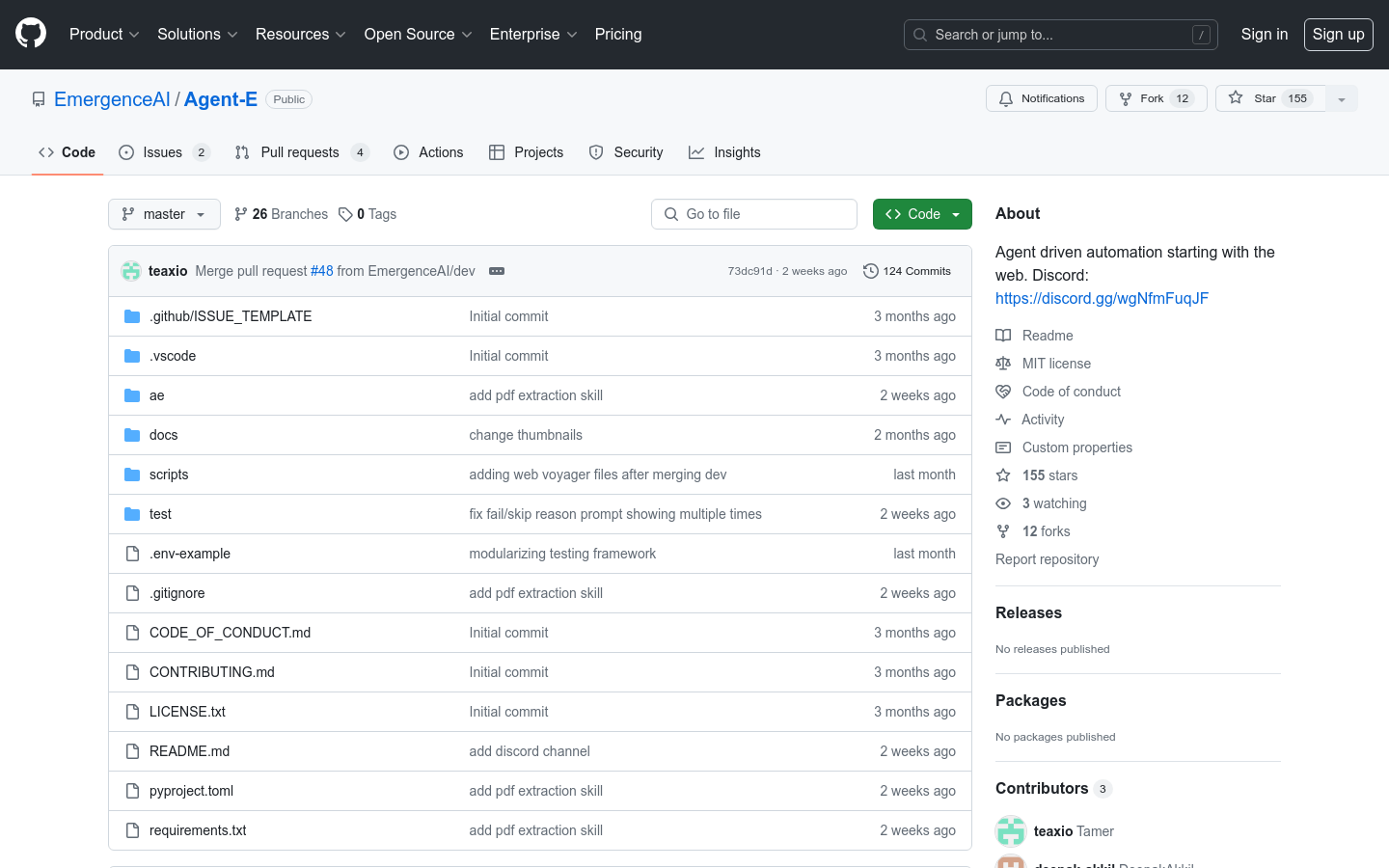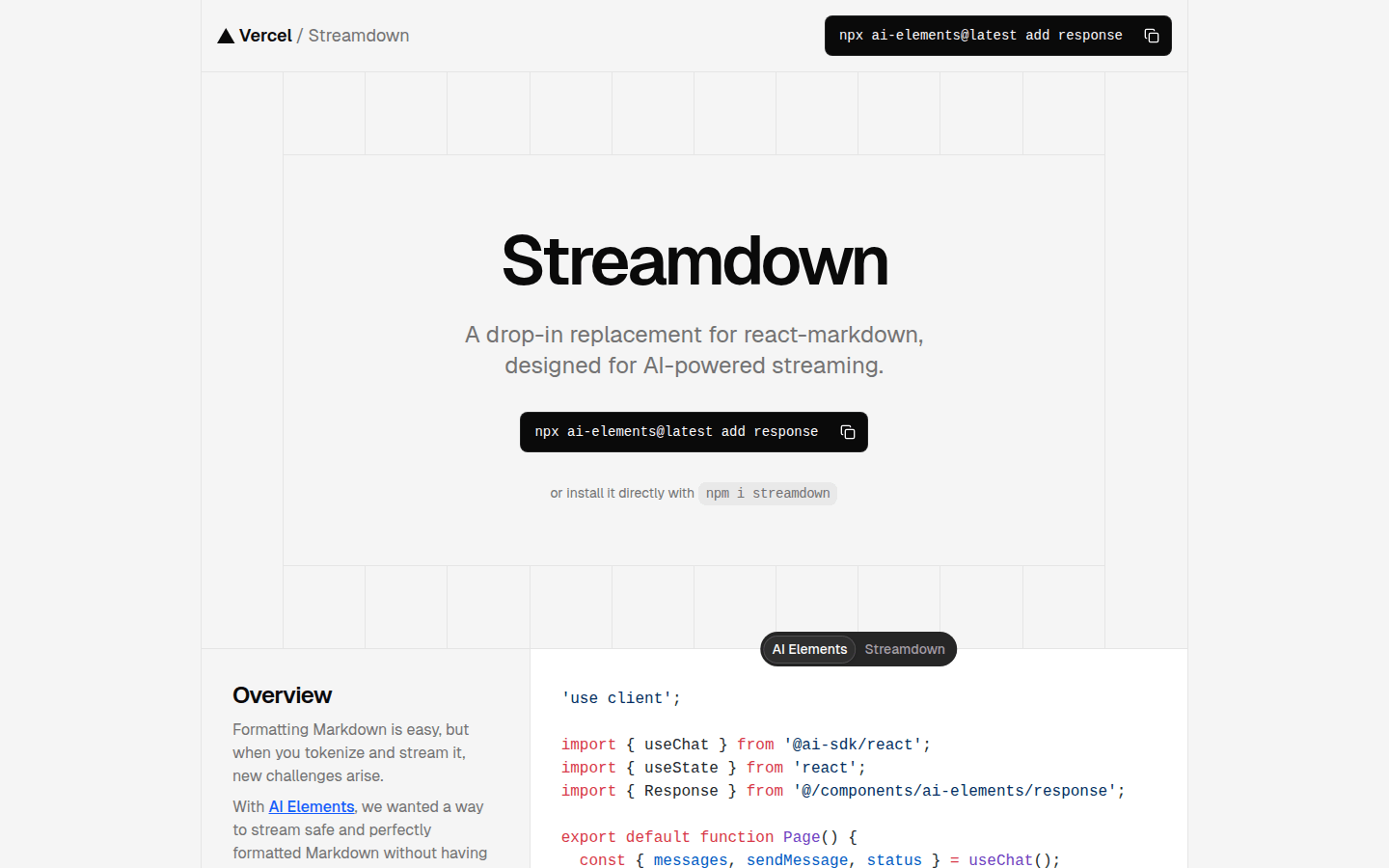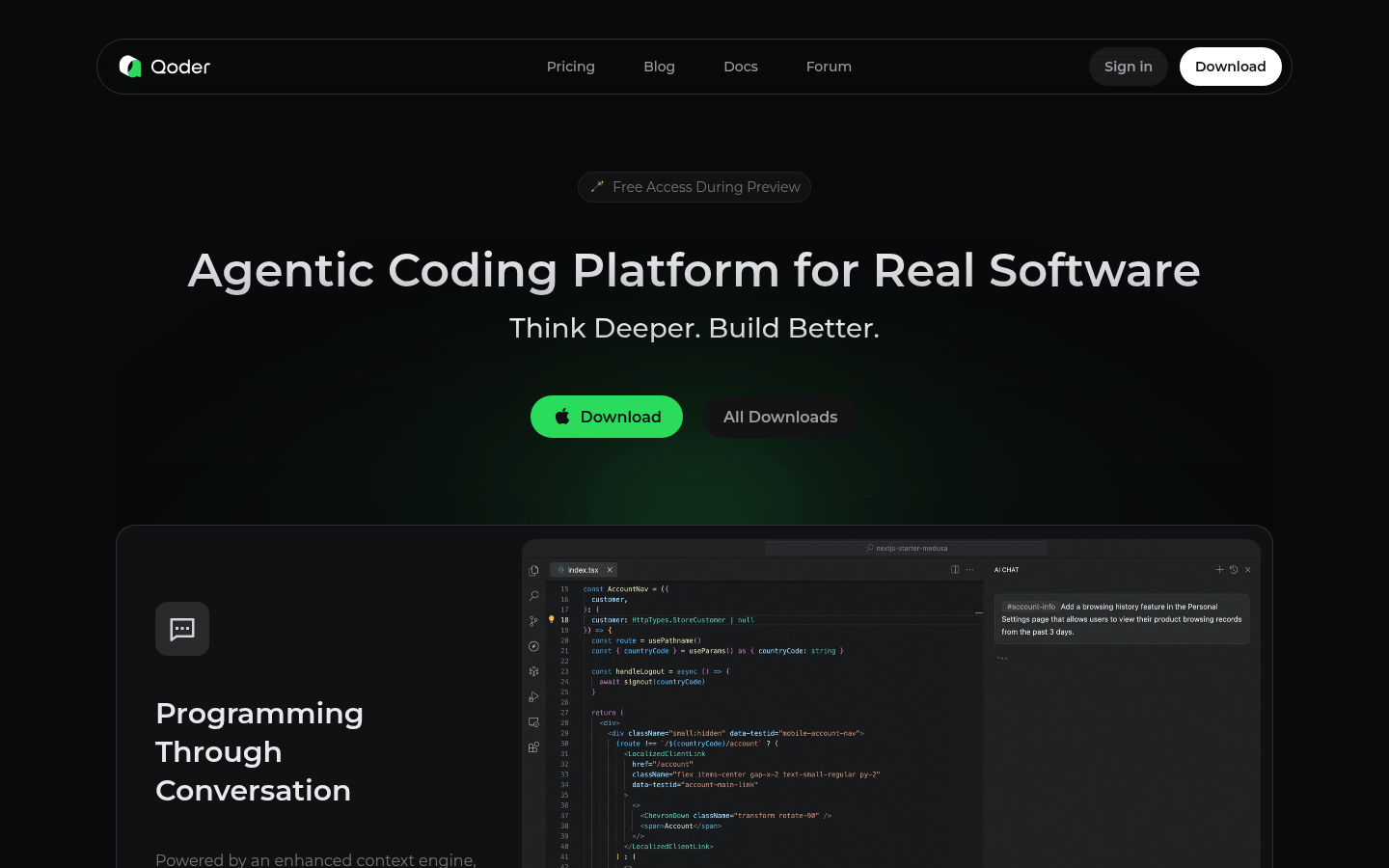multi-agent-concierge
Multi-agent concierge system to improve customer service efficiency

Product Details
multi-agent-concierge is a multi-agent concierge system that uses multiple specialized agents to complete complex tasks and a "concierge" agent to guide users to the correct agent. Such systems are designed to handle multiple tasks with interdependencies, using hundreds of tools. The system demonstrates how to create implicit "chains" between agents through natural language instructions and manage these chains through "continuation" agents, while using global state to track users and their current status.
Main Features
How to Use
Target Users
This product is suitable for developers and enterprises who need to deal with complex tasks and tool selection, especially in the field of customer service automation, to significantly improve efficiency and user experience.
Examples
Banking systems can use this model to implement functions such as user authentication, account inquiries, and fund transfers.
Online customer service platforms can utilize multi-agent systems to handle users' diverse requests.
In-house automation tools can use the system to coordinate task processes across different departments.
Quick Access
Visit Website →Categories
Related Recommendations
Discover more similar quality AI tools

muAgent
muAgent is an innovative Agent framework driven by a knowledge graph engine that supports multi-Agent orchestration and collaboration technology. It uses LLM+EKG (Eventic Knowledge Graph industry knowledge bearing) technology, combined with FunctionCall, CodeInterpreter, etc., to realize the automation of complex SOP processes through canvas drag and light text writing. muAgent is compatible with various Agent frameworks on the market and has core functions such as complex reasoning, online collaboration, manual interaction, and ready-to-use knowledge. This framework has been verified in multiple complex DevOps scenarios of Ant Group.

Internet of Agents
IoAI (Internet of Agents) is an intelligent agent interconnection framework that aims to achieve automated collaboration between different intelligent agents through a highly modular design. It allows developers to quickly integrate third-party intelligent agents and perform task allocation and execution through a unified interface. The core advantage of IoA is its flexibility and scalability, supporting a variety of application scenarios, including but not limited to collaborative paper writing, benchmark testing, and open instruction data sets.

AutoGPT
AutoGPT is a powerful tool that allows users to create and run intelligent agents that can automate various tasks and make life easier. The goal of AutoGPT is to provide tools that allow users to focus on what matters. It pushes the frontiers of AI innovation by building and using AI agents.

llama-agents
llama-agents is an asynchronous-first framework for building, iterating, and productionizing multi-agent systems, including multi-agent communication, distributed tool execution, artificial-in-the-loop, and more. Each agent is treated as a service, constantly processing incoming tasks. Agents pull and publish messages from the message queue. At the top of the system is the control plane, which keeps track of ongoing tasks, services in the network, and decides which service should handle the next step of the task.

Agent-E
Agent-E is a system based on the AutoGen agent framework designed to automate operations on the user's computer, currently focusing on in-browser automation. It interacts with web browsers through natural language to perform operations such as filling out forms, searching and sorting e-commerce products, locating website content, managing playback settings, performing web searches, and managing project management platform tasks. Agent-E is growing and can handle a variety of tasks, but the best tasks are discovered by users themselves.

Agent Mode
Agent Mode is a feature of Warp AI that allows users to complete multi-step workflows in the terminal using natural language. It recognizes and interprets natural language instructions, provides context-specific guidance, and guides users through multi-step tasks. Agent Mode utilizes OpenAI's API but does not store or retain user input or output data.

LaVague
LaVague aims to redefine the internet browsing experience by converting natural language instructions into seamless browser interactions. It leverages natural language processing and Selenium integration to enable users or other AI to easily express web workflows and execute them on the browser.

Cognitora
Cognitora is the next generation cloud platform designed for AI agents. Different from traditional container platforms, it utilizes high-performance micro-virtual machines such as Cloud Hypervisor and Firecracker to provide a secure, lightweight and fast AI-native computing environment. It can execute AI-generated code, automate intelligent workloads at scale, and bridge the gap between AI inference and real-world execution. Its importance lies in providing powerful computing and operation support for AI agents, allowing AI agents to run more efficiently and safely. Key benefits include high performance, secure isolation, lightning-fast boot times, multi-language support, advanced SDKs and tools, and more. This platform is aimed at AI developers and enterprises and is committed to providing comprehensive computing resources and tools for AI agents. In terms of price, users who register can get 5,000 free points for testing.

Macroscope
Macroscope is a programming efficiency tool that serves R&D teams. It has received US$30 million in Series A financing and has been publicly launched. The core functions focus on code management and R&D process optimization. By analyzing the code base to build a knowledge graph and integrating a multi-tool ecosystem, it solves the pain points of engineers being burdened with non-development work and managers having difficulty keeping track of R&D progress. Its technical advantage lies in multi-model collaboration (such as the combination of OpenAI o4-mini-high and Anthropic Opus 4) to ensure the accuracy of code review, and customer data is isolated and encrypted, compliant with SOC 2 Type II compliance, and promises not to use customer code to train models. Pricing is divided into Teams ($30/developer/month, at least 5 seats) and Enterprise (customized price) packages, targeting small and medium-sized R&D teams and large enterprises with customization needs, helping teams focus on core development and improving overall R&D efficiency.

100 Vibe Coding
100 Vibe Coding is an educational programming website focused on quickly building small web projects through AI technology. It skips complicated theories and focuses on practical results, making it suitable for beginners who want to quickly create real projects.

iFlow CLI
iFlow CLI is an interactive terminal command line tool designed to simplify the interaction between developers and terminals and improve work efficiency. It supports a variety of commands and functions, allowing users to quickly perform commands and management tasks. The key benefits of iFlow CLI include ease of use, flexibility, and customizability, making it suitable for a variety of development environments and project needs.

Never lose your work again
Claude Code Checkpoint is an essential companion app for Claude AI developers. Keep your code safe and never lost by tracking all code changes seamlessly.

Streamdown
Streamdown is a plug-and-play replacement for React Markdown designed for AI-driven streaming. It solves new challenges that arise when marking and streaming, ensuring safe and perfectly formatted Markdown content. Key advantages include AI-driven streaming, built-in security, support for GitHub Flavored Markdown, and more.

Qoder
Qoder is an agent coding platform that seamlessly integrates with enhanced context engines and intelligent agents to gain a comprehensive understanding of your code base and systematically handle software development tasks. Supports the latest and most advanced AI models in the world: Claude, GPT, Gemini, etc. Available for Windows and macOS.

Compozy
Compozy is an enterprise-grade platform that uses declarative YAML to provide scalable, reliable and cost-effective distributed workflows, simplifying complex fan-out, debugging and monitoring for production-ready automation.